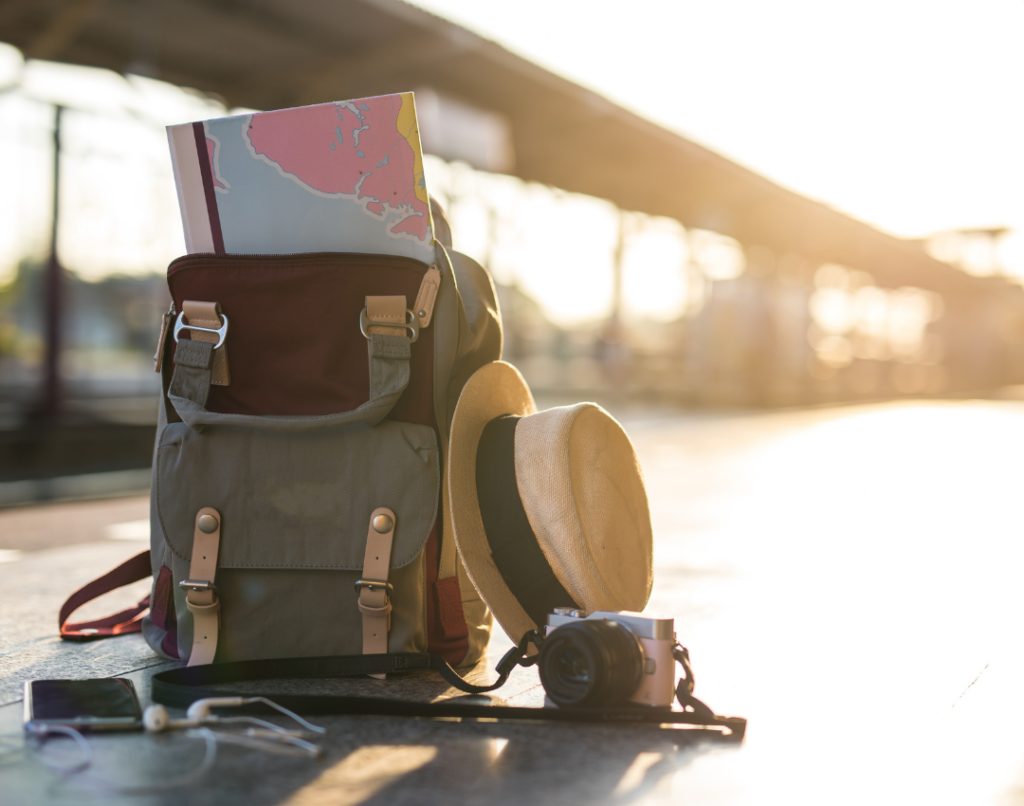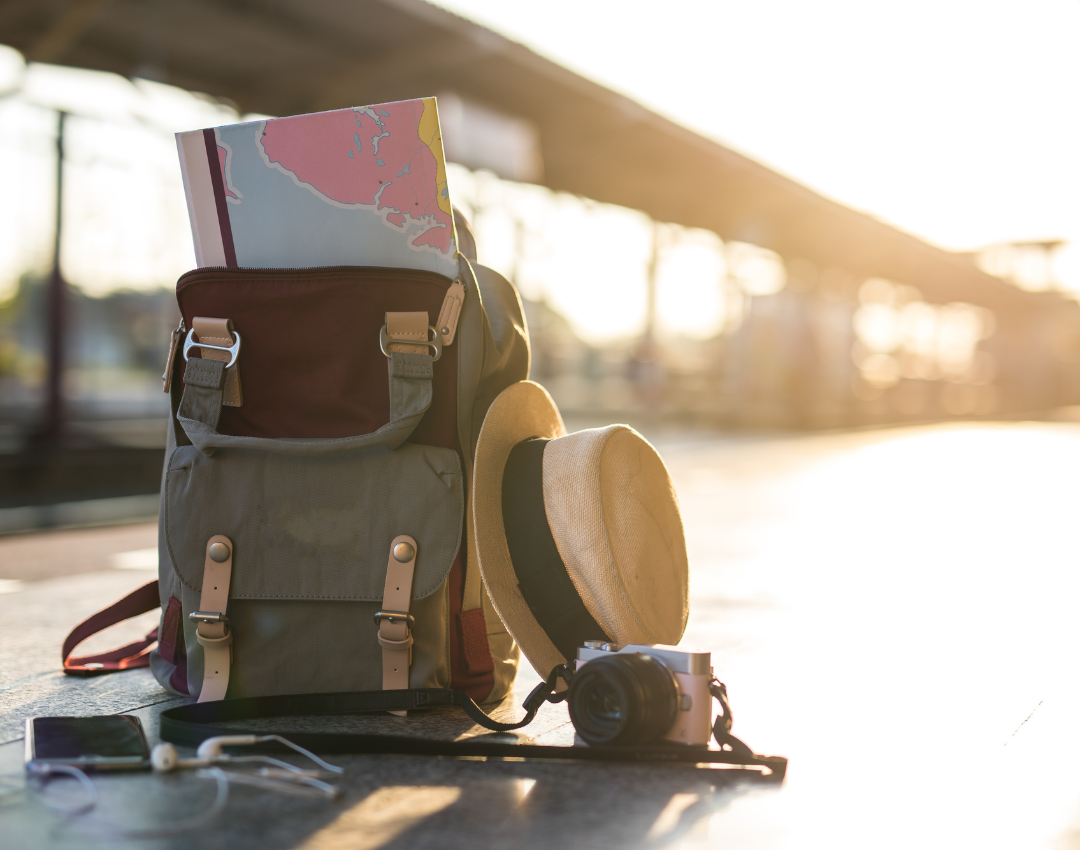A good work-life balance provides benefits to both employees and employers – it promotes productivity and engagement as well as improvements in physical and mental health.
If your organisation’s business travellers or conference delegates visit a location for work purposes that they’ve longed to explore, or want to take some downtime in, it becomes increasingly enticing to take annual leave and spend a few days doing just that.
The travel phenomenon of ‘bleisure’ (combining business and leisure trips) is rising. Reed & Mackay’s parent company, Navan, predicts ‘explosive growth in the bleisure market over the next decade’, reporting an increase in bleisure travel of 76% year on year in 2023.
And it’s a trend Reed & Mackay Group CEO Fred Stratford believes will increasingly make sense to business travellers and their organisations, which our recent Business Travel Trends 2024 Predictions report shows.

“Many factors drive this particular hybrid of travel; people’s own view on sustainability, the cost of travel and the convenience factor,” Stratford says. “People are becoming agnostic to the purpose of the travel and looking at it holistically from an individual perspective. That’s why I think we will see more of this trend in 2024.
“And corporates are encouraging this way of travelling too. Traveller wellbeing is another important factor that plays into this trend.”
Skift’s recent survey of business travellers further highlights the growth in the bleisure trend. More than two thirds of business travellers plan to combine work trips with leisure travel in the coming year, according to the report. Alongside that, 58% of managers say they actively encourage their employees to do so.
Furthermore, it’s a good way to attract and retain talent, particularly for certain generations. Hilton Worldwide’s 2024 Trends Report shows 24% of global business travellers plan to take a friend or family member with them on a business trip this year. Within that figure, more than a third of Gen Z and Millennials are likely to extend their trips to enjoy leisure time.
“And it’s clear the trend of adding personal travel to a corporate travel trip will steadily form part of a normal working environment, as Gen Z progress through their careers,” Reed & Mackay Global Operations Director Tony Peckham says.
“It then raises the question of whether organisations need to incorporate more flexible travel policies that include leisure time.”
However, there are many areas still to consider. Our recent poll asks travel buyers and event managers what elements concern them if an employee asks about bleisure travel. More than half of respondents cite duty of care obligations, while a third say expense management. Then the remaining respondents highlight policy compliance.

9 POINTS TO CONSIDER FOR BLEISURE TRAVEL POLICIES
1. Present a clear definition of when the personal and professional parts of the trip start and end. The company must give employees a clear understanding of the travel policy before they embark on the trip. In addition, determine whether the leisure part of the trip will include working remotely. This is particularly key as the digital nomad trend continues to grow. Put clear guidelines in place across every part of the trip.
2. Involve your organisation’s senior leadership, HR, legal and finance teams from the start of the policy’s creation. Your HR team can help with logging the requests for bleisure travel into a Human Resources Information System.
This ensures there are clear definitions of what is business and what is annual leave within the trip. And it’s an opportunity for the company to determine if offering bleisure travel delivers benefits. These can include elements such as increased employee satisfaction and whether cost savings can be made via competitive rates from suppliers for extended stays.
3. The policy must be clear on expenses before the trip takes place. Determine the point at which claims for company expenses stop and when leisure time begins.
Which part of accommodation and transport is covered by the employer and which by the employee? Will the employer cover costs for attending client events outside of normal business hours? Ensure expense management tracking is in place for ease of reporting and expectations.
4. What are the cancellation policies for the leisure side if a business trip gets cancelled? Incorporate a disclaimer; employees are responsible for any personal travel commitments. Ask your company’s legal team to assist with the detail.

5. All business trips require travel insurance. Ensure the traveller has insurance for the personal part of their trip, especially if it’s not already included in the company’s travel insurance.
6. Does a company’s duty of care obligations to their business traveller or conference delegate extend to their leisure time? Conduct a pre-travel risk assessment of the destination and share any relevant information with employees. Include details on any geopolitical unrest, extreme weather possibilities and accessibility of local healthcare.
Establish whether the company will maintain its duty of care obligations during the traveller’s leisure time, such as traveller tracking, monitoring and response to incidents. Encourage travellers to follow travel advisories and health guidelines. If the traveller is not in the accommodation booked for use during the business trip, are they staying in a safe place?
7. Make it clear who is eligible for bleisure travel. There needs to be a legitimate business reason for that trip and not simply because it’s in or near a destination earmarked for leisure. Establish which individuals within the company need to be part of the approval process for bleisure requests.
8. Consider the possibility of reputational damage, especially if the employee is travelling with a preferred supplier. Does the policy cover behaviour and conduct during leisure activities to ensure it aligns with the company’s expectations? Plus, remind employees to be cautious about what they share on social media, whether it’s related to work or personal life.
9. Each organisation has a different view on bleisure and what constitutes working hours and personal time during any trip. No one-size-fits-all approach can be adopted. Tailor policies to the individual requirements of the company and employees. Clear communication is important throughout the entire process when creating a bleisure travel policy to prevent any misunderstandings.
Mail hello@reedandmackay.com to discuss all of your travel and events management needs.














